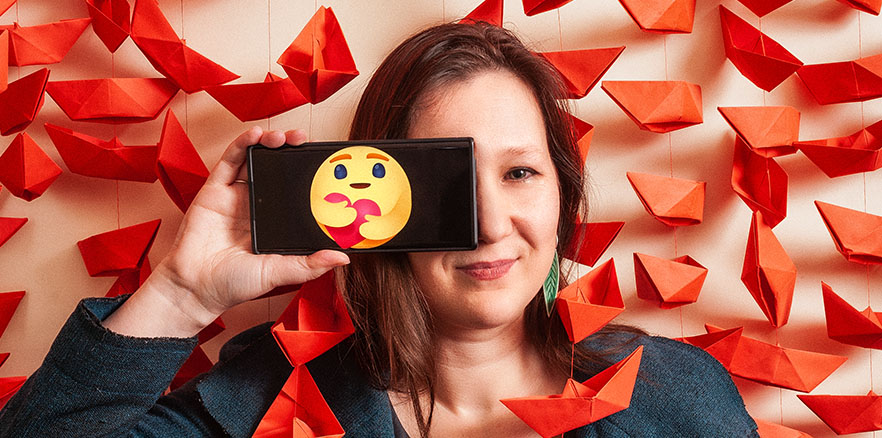
Dr Susan Wardell is researching moral emotion in digital spaces.
The internet may be an effective means of communication, but recent events have led many to question whether the bad outweighs the good.
Dr Susan Wardell (Social Anthropology) has been researching moral and social aspects of the digital world and suggests that the internet is a far more human space than we might realise.
“COVID has shifted more and more of social life online, but it's not all bad. Most of my research and teaching deals with things that are dark or fraught in some way. But somehow that always takes me closer to topics like care and empathy too. It's all the stuff that makes us human.”
Wardell completed a BA(Hons) in Social Anthropology and Communication Studies at Otago before working as a research assistant on a Marsden-funded project on moral reasoning and disability.
That led to her examining a viral crowdfunding campaign for a baby with Down's syndrome and sparked an ongoing interest in care and emotion in digital spaces, particularly in relation to health.
For her PhD in Social Anthropology and Communication Studies she compared burnout in two Christian youth work organisations – in post-quake Christchurch and urban Kampala, Uganda – which featured in her first book, 'Living in the Tension'.
“When I started my PhD I thought I would become a research academic, which I was very much looking forward to. I thought teaching was just something people had to do on the side, but instead I fell deeply in love with it."
“I had a wonderful supervisor and mentor in Professor Ruth Fitzgerald and learned so much about teaching from her. My research also shaped how I teach.”
Wardell won Otago University Students' Association Supervisor of the Year in 2019. She also gained a teaching and learning grant to create a resource to help bridge students from other fields into Social Anthropology.
While building these skills, she conducted pilot research on climate grief/anxiety as navigated by online communities.
When the Christchurch mosque attacks happened, Wardell turned her attention to a series of interviews about “online care” in the aftermath.
She gained a University of Otago Research Grant to extend this by looking at digital memorialisation around the tragedy.
Now she has been awarded a Marsden Fast-Start grant (2020-2023) to study medical crowdfunding in Aotearoa, analysing campaign pages and conducting case studies and interviews with campaigners and audiences/donors.
“Looking at medical crowdfunding reveals real social needs and inequalities. It also raises questions of moral emotion in digital spaces, in terms of how the 'crowd' might respond. It is important to tell these stories, not just to academics but also the public – and there are lots of opportunities out there.”
Recent awards
- OUSA Supervisor of the Year (2019)
- 1st Place, 'Writer' Competition, Staff Poetry category – University of Otago (2020)
- 1st Place, Headlands Tāne a Māra Creative Nonfiction Prize (2021)
- 1st Place, Micro-Madness International Micro Fiction Competition (2019)
- 1st Place, Ethnographic Poetry Competition – Society for Humanistic Anthropology (2020)
More stories about early career researchers
This story is part of the research publication 'He Kitenga 2022: Talented Futures', which presents the different pathways into research that early career researchers follow.